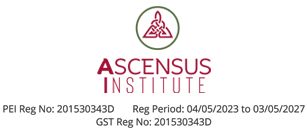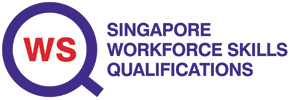Postgraduate Diploma in Management (Major in Business Analytics)
Overview
Our Postgraduate Diploma courses are for individuals who want to acquire the specialised knowledge and qualifications required to explore and enter a different industry or for existing professionals who aspire to career progression.
Learners (Students) will learn from a network of established industry practitioners; this will enable them to have an extra edge in securing fruitful employment and build their careers upon graduation. Learners (Students) will gain a solid understanding of the business and management aspects of the industry from the course major selected.
Modules
1. Marketing Management (Core Module)
This module explores some general topics areas, which include services marketing, customer satisfaction, strategic marketing planning, marketing strategy, and current global marketing concerns.
The module introduces to the learners (students) how theories of marketing principles, strategies, and trends analysis can assist marketers, managers, and entrepreneurs to effectively satisfy their consumers’ needs and demands, promote differentiation of their businesses, and achieve profitability in long-term profitability.
2. Financial and Managerial Accounting (Core Module)
This module is designed for learners (students) who use or will utilize financial, managerial, and cost management accounting tools to make decisions. It aims to develop learners’ (students’) ability to understand managerial accounting problems in the real-world of business contexts.
The module covers subjects such as users of accounting, different sorts of businesses, key accounting principles and concepts, ethics and standards in the accounting practice, double-entry accounting, financial statement analysis, receivables management, and the costs and advantages of internal controls.
Managers should be familiar with the fundamentals of management accounting, and this module imparts how management accounting may benefit them. It pays close attention to the needs of managers who are familiar with financial reporting and can select solutions that are critical to their company's success.
3. Human Capital Management (Core Module)
This module allows learners (students) to apply their knowledge and expertise of managing organizational resources, particularly human resources, at the corporate level.
The curriculum covers all of the fundamental ideas and best practices in human resource management. It also gives specialized information, skills, and abilities concerning organizational structures and procedures that focus on improving workplace human behaviour.
4. Strategic Management (Core Module)
The module is designed to present the nature and purpose of strategic management from both a local and global perspective, strategic management models, strategy formulation, external and internal environmental analysis and evaluation, competing in the global marketplace, strategy implementation, strategy monitoring through balanced scorecards, issues related to the organization's functional areas in relation to the corporate business strategy, strategy review, evaluation and control and corporate social responsibility that make up an integrative corporate strategy.
5. Business Analytics for Decision Making (Elective Module)
Data interpretation has never been more in demand than it is now! Thanks to new analytical tools, methodologies, and technologies that allow users to delve deeper into analytical processes previously only feasible through human manipulation of digital processes and platforms.
This module introduces to the learners (students) the application skills of data analytics to investigate large amounts of data in today's competitive corporate world. Businesses can now use big data to investigate human and consumer behaviour using patterns and descriptions.
6. Machine Learning and Its Business Applications (Elective Module)
This module is intended to provide learners (students) with an overview of machine learning as well as an introduction to Python as a coding language. It does not get into the statistics of the methods, but rather the methodologies of machine learning. It distinguishes between descriptive statistics and machine learning. Clustering task of data, cluster assessment, data dimensionality, and basics of Python, scikit learn, other learning algorithms, predictive models, scikit learn predictive modelling methods, data generalizability, basics of ensembles, practical limitations of predictive models, supervised (classification), unsupervised (clustering) techniques, and Python coding for analysis are among the other topics covered in this module.
7. SQL for Business Analytics (Elective Module)
This module explains the many types of relational databases and how to operate them using SQL (Structured Query Language). Data has become the common language of both online and offline businesses. Techniques for managing large amounts of data range from customer preferences, behaviour, and habits to data on medical patients, including not only personal information but also medical histories, diagnoses, and remedies. The SQL (sometimes pronounced as "sequel") language is one approach to extract data from such a plethora of database sources.
Who Should Attend?
• Company-funded employees who are required to upskill to support the work functions at the workplace.
• Individual who is seeking to upskills for a career progression or employability.
• Individuals who want to acquire the specialised knowledge and qualifications required to explore and enter into a different industry.
Entry Requirement
• 21 years old
• Attainment of IELTS 6.0 or equivalent, or
• A pass in ASCENSUS INSTITUTE’s English Literacy Test with a minimum grade of 70%.
Normal Entry:
• A Bachelor’s Degree in any field or equivalent.
Alternative Entry:
• Applicants with the minimum age of 30, who do not possess the above qualifications but have a minimum of 8 years working experience, may be considered for entry into this course.
• Evidence of previous employment will need to be provided, together with a reference from the current or recent employer (on letter-headed paper).
Graduation Requirement and Award
ASCENSUS INSTITUTE awards will be conferred upon successful completion of the course that attained at least a pass with ‘C-” grade in all modules, i.e., 4 core modules and 2 elective modules.
Duration
Full-time: 6 months
Part-time: 9 months
Teacher : Student Ratio - 1 : 40
Possible Progression
Upon successful completion of the course, learners (students) may progress into a Masters course, subject to obtaining the approval of the university.
Intakes
Monthly
Fees
Non-refundable Application Fee: S$218 w/GST (S$200 w/o GST)
Course Fee: S$7,630 w/GST (S$7,000 w/o GST)



